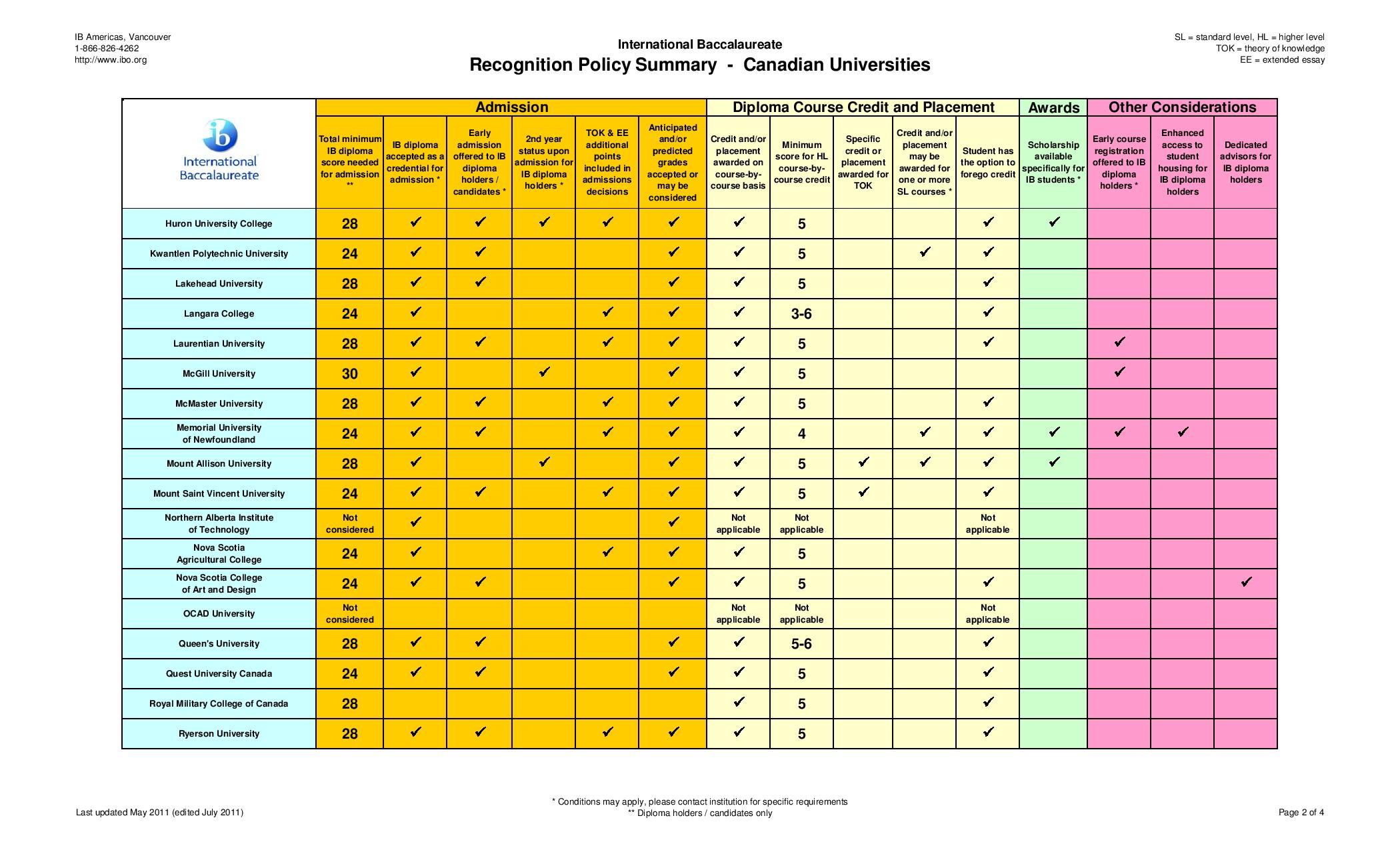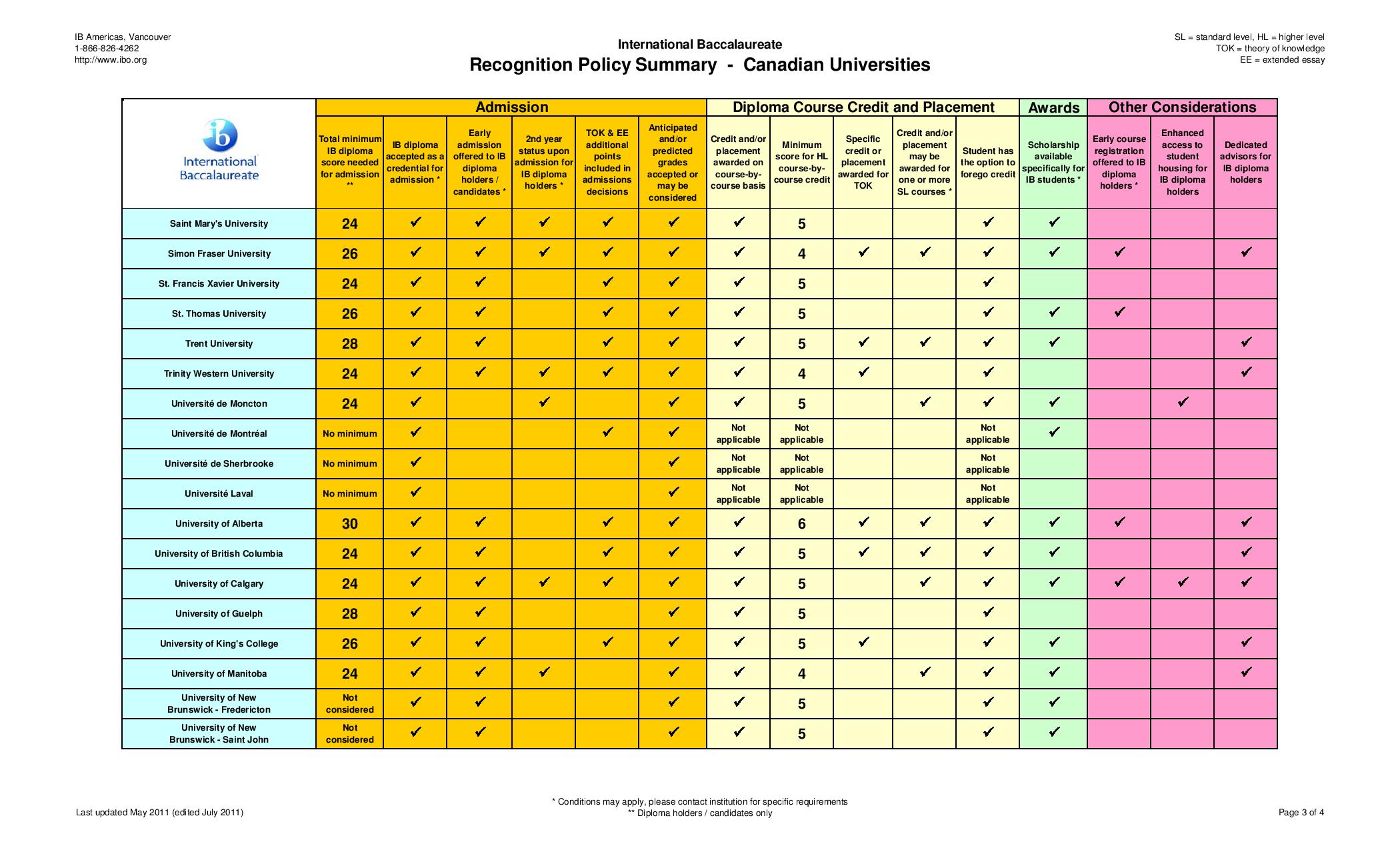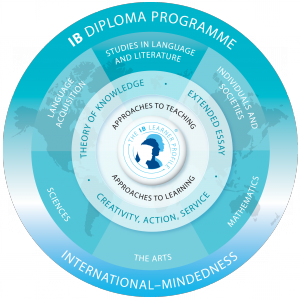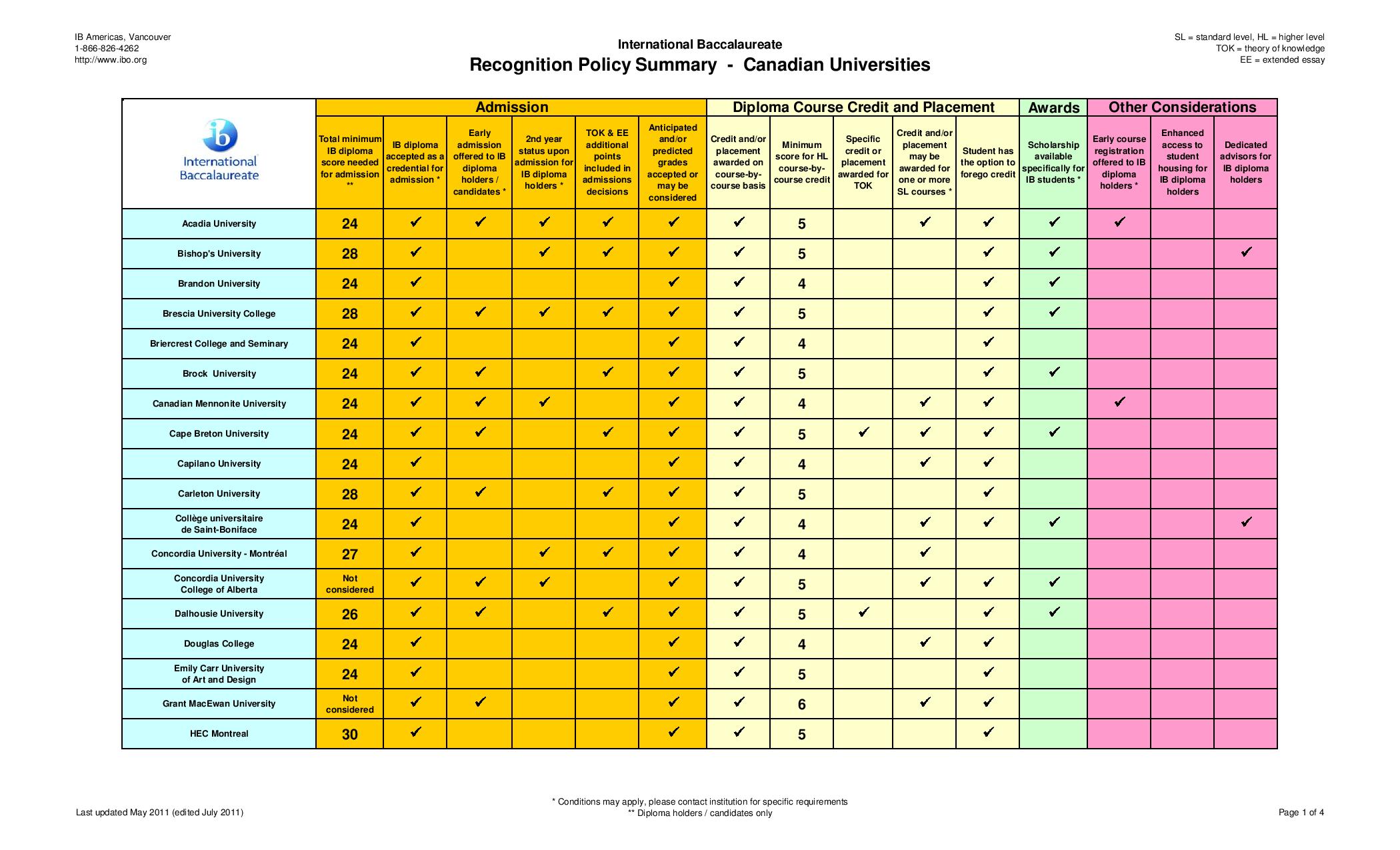Grade 8 Info Night IB Presentation 2024
The IB programme allows students to explore their personal and academic interests via the International Baccalaureate model. Depending on their post-secondary aspirations and learning goals, students have the option of completing individual IB courses or completing the full IB Diploma. Both program options are valuable and should be chosen based on individual student needs. You will find details about this programme on this page, as well as on our “For Parents” and “For Students” pages.
This video, “What is an IB Education“, provides a brief history and summary of the IB Programme.
THE INTERNATIONAL BACCALAUREATE ORGANISATION
The IBO (International Baccalaureate Organisation) was founded as a nonprofit educational foundation based in Geneva Switzerland. It grew out of the efforts of international schools, in the early 1920s, to establish a common curriculum and a university entry credential. The schools were also motivated by an idealistic vision. They hoped that critical thinking and exposure to a variety of points of view would encourage intercultural understanding by young people.
Ultimately, they developed a balanced curriculum with high standards of assessment that could be administered in any country and would be recognized by universities around the world.
Today, the International Baccalaureate Diploma Programme provides a truly world-class education in over 130 countries abroad, and it is recognized worldwide as the international standard of outstanding merit in secondary education. It is a comprehensive program that encourages critical thought, research skills and service as part of the learning process through a shared educational experience. In short, the IB Diploma has become a symbol of academic integrity and intellectual promise.
The committees that govern the IB organisation are served by representatives from governments and authorized schools as well as others in the field of education. The chief executive officer (Director General) has headquarters in Geneva, Switzerland. Curriculum and assessment, and the business and financial operations are based in Cardiff, Wales, UK.
THE IB PROGRAMME AT CAMERON HEIGHTS
Cameron Heights is proud to be a member of the group of distinguished schools who offer the International Baccalaureate Programme and is equally proud to bring the IB Programme to secondary school students in the Region of Waterloo and surrounding area. It offers motivated students the opportunity to achieve their potential through an education of the highest quality, and concurrently, one that views the world through a framework of internationalism. Only schools authorized by the International Baccalaureate Organisation are eligible to teach the curriculum and to register candidates for examination. The IB Programme draws its strength from the best of many national educational systems.
All IB candidates are required to engage in the study of languages, sciences, mathematics, and humanities. This rigorous course of studies is a deliberate compromise between the specialization desired in some countries and the emphasis of breadth often preferred by others. Students will learn how to learn, to analyze, and to reach informed conclusions about other people and their culture as well as the scientific forces of the environment.
IBO MISSION STATEMENT
The International Baccalaureate Programme (IB) aims to develop inquiring, knowledgeable and caring young people who help to create a better and more peaceful world through intercultural understanding and respect. To this end, the organization works with schools, governments and international organizations to develop challenging programmes of international education and rigorous assessment. These programmes encourage students across the world to become active, compassionate and lifelong learners who understand that other people, with their differences, can also be right.
CHCI MISSION STATEMENT
“Together as One” we are committed to strengthening our caring community, to embracing diversity and to fostering life-long learning.
PROGRAMME STRUCTURE
The IB Diploma Programme is a comprehensive pre-university liberal arts curriculum that provides students with the intellectual, social and critical perspectives necessary to succeed at post secondary institutions both in North America and abroad. The structure of the programme is best represented as a circle. A student’s course of studies consists of at least one subject from each of the six groups shown below:
Three of the subjects (English, History, and Biology) are taken at the “Higher Level” (HL), each of which is equivalent to two or three enriched OSSD credits. The other three subjects (French, Mathematics and an elective – Visual Arts, Business Management, Physics or Chemistry) are taken at the “Standard Level” (SL), each of which is equivalent to two enriched OSSD credits. In addition to the six academic subjects, students complete “Theory of Knowledge” (TOK), an interdisciplinary course designed to develop a coherent approach to learning which transcends and unifies the academic subjects and encourages an appreciation of other cultural perspectives.
The IB Programme at Cameron Heights is fully harmonized with the requirements of the Ontario High School Diploma. As a result, successful IB candidates graduate with dual qualifications. Graduation with the full IB diploma constitutes a thorough preparation for post secondary study anywhere in the world, and at the same time, provides them with course credit and potential transfer credits at universities and colleges.
ADDITIONAL REQUIREMENTS – THE IB CORE
Theory of Knowledge (TOK) provides coherence to the program. It is a course of study unique to the International Baccalaureate Diploma Programme and mandatory for every diploma candidate. It is an interdisciplinary course intended to stimulate critical reflection upon the knowledge and experience gained inside and outside the classroom. TOK challenges students to question the bases of knowledge, to be aware of subjective and ideological biases, and to develop a personal mode of thought based on analysis of evidence expressed in rational argument. Within TOK, candidates are encouraged to reflect on all aspects of their work throughout the Diploma Programme. As befits an international program, the Theory of Knowledge course is appreciative of various cultural traditions and encourages contemplation of the strengths and limitations of different ways of thinking.
The Extended Essay requires diploma candidates to undertake original research and write an extended essay of some 4000 words. This aspect of the program offers the opportunity to investigate a topic of special interest and to become acquainted with the kind of independent research and writing skills expected at the university level. A student may choose to write on a topic in one of 60 subjects available in the IB diploma curriculum. The staff of Cameron Heights Collegiate will ensure that the IB diploma candidates are appropriately supervised. The supervisor is usually a faculty member able to provide academic guidance for the subject in which the extended essay is registered. In addition, the supervisor will provide general guidance on time management and the overall structure and presentation of the paper.
Creativity, Activity, Service (CAS) is a fundamental part of the diploma experience. The CAS requirement takes seriously the importance of life outside the world of scholarship, providing a refreshing counterbalance to the academic self-absorption some may feel within a demanding school environment. The goal of educating the whole person and fostering a more compassionate citizenry comes alive in an immediate way when students reach beyond themselves and their books. CAS involves three essential activities:
Creativity: arts, and other experiences that involve creative thinking
Activity: physical exertion contributing to a healthy lifestyle
Service: unpaid voluntary exchange that has a learning benefit for the student.
Students are expected to be involved in CAS activities for 3 to 4 hours per week over Year 1 and Year 2 of the IB Diploma Programme (Grades 11 and 12). Students are to attempt to balance their hours between Creativity, Activity and Service. The CAS element of the program is designed to foster a spirit of discovery and contribute to the society to which the students belong.
INDIVIDUAL IB COURSES: GRADES 11 AND 12
Depending on the post-secondary pathway students wish to pursue, students may choose to take individual IB Courses in grades 11 and 12, rather than completing the Full IB Diploma. Students may choose TWO OR MORE COURSES to study in grades 11 and 12 and receive individual IB Course Certificates for those courses. Students pursuing this partial IB programme do not need to complete the central elements of EE, TOK and CAS. Both program options are valuable and should be chosen based on individual student needs.
IB LEARNER PROFILE
The IB learner profile is the IB mission statement translated into a set of learning outcomes for the 21st century.
The learner profile provides a long-term vision of education. It is a set of ideals that can inspire, motivate and focus the work of schools and teachers, uniting them in a common purpose.
Read the full IB Learner Profile.
This video illustrates the IB Learner Profile across age and grade levels.
UNIVERSITY RECOGNITION
The International Baccalaureate Programme has developed an outstanding reputation among the leading undergraduate colleges and universities around the world. The IB Programme is committed to the “Liberal Arts Tradition” of education which also provides the philosophical basis for undergraduate programs in many of the world’s leading universities. The intellectual rigor of the IB curriculum means that diploma holders are well prepared for even the most challenging undergraduate programs. Universities around the world, from the University of Toronto to Harvard, Yale and Oxford recognize the IB Diploma. They acknowledge the rigours of the Diploma Programme by granting advanced level standing to meritorious students. Most universities give preference to IB Diploma holders and most will grant first-year university credits for up to six subjects. (This depends on the university and the program selected.)
WHY IB? A spokesperson from the Stanford University tells you why HERE.
Presentation by UBC’s Admission Officer: IB Students and First Year University Performance

 OTHER STUDIES
OTHER STUDIES
Graduate Destination Survey for Canada
IB Diploma a Strong Predictor of Success
Recognition of the Diploma Programme 2010
The UBC Undergraduate Admissions Model

